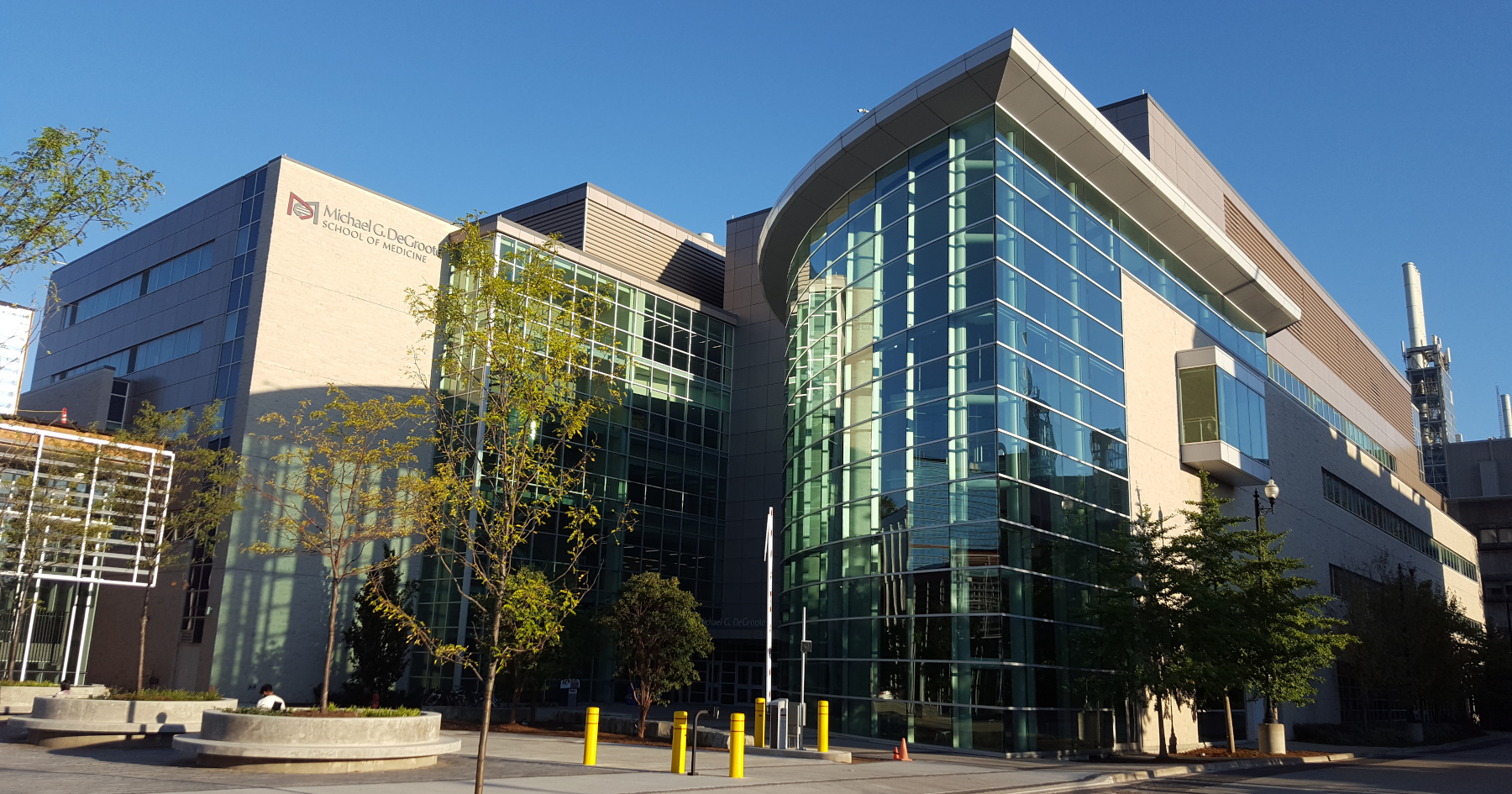A made-in-Hamilton COVID vaccine that requires no needles is moving to the next stage of testing and researchers are looking for volunteers to take part.
The vaccine that is inhaled instead of injected will be studied by McMaster University researchers with $8 million in funding from the Canadian Institutes of Health Research (CIHR).
“We truly believe that the type of immune response you get from a vaccine that is given into the lungs … is going to be more effective than the sort of immunity you get from an intramuscular injection,” said Dr. Fiona Smaill, who co-led the research. “What we learn probably would be informative for influenza and other respiratory viruses as well so there’s a lot of reasons why we really want to become comfortable with … the types of immune responses that develop when we give a vaccine this way.”
The AeroVax study is recruiting 350 people in Hamilton, Ottawa and Halifax to take part in the randomized double-blind Phase 2 trial that will give two out of every three participants the inhaled vaccine — the other will unknowingly get a placebo.
Participants must be between the ages of 18 to 65 and be previously immunized with at least three doses of a mRNA COVID vaccine like Pfizer-BioNTech or Moderna. More information about eligibility is available at aerovax.ca/.
“We’ve seen how the mRNA vaccines and the other protein vaccines have been effective in really changing the picture of COVID. We’re not seeing the same deaths and hospitalizations that we saw early on,” said Smaill, professor emeritus in the department of pathology and molecular medicine. “But the reality is that people are still getting infections, even though they’ve had multiple doses of a mRNA vaccine that has continued to be modified to account for the variants that are evolving.”
The inhaled vaccine, called ChAd-triCoV/Mac, directly targets where the virus first enters the body in the lungs and upper airways.
It is manufactured in Hamilton at McMaster’s Robert E. Fitzhenry Vector Laboratory.
“It is very relevant because it’s not over (the pandemic),” Smaill said. “Although most infections are mild, if you look back over the last several months, most of the (hospital) admissions related to COVID were in the elderly who do not do well when they get any type of respiratory infection. What we would hope is that by controlling the transmission of COVID in the community, you are protecting those most vulnerable.”
The vaccine also has the potential to provide an alternative to needles.
“A lot of people are very hesitant to have a vaccine and it’s in part because of the needle,” Smaill said. “I think if we can demonstrate that this route of getting a vaccine is as — if not more — effective, then that will really broaden the opportunity that we’ve got to provide good, effective vaccinations to the whole population.”
A pilot study with 36 Hamilton area participants found no side effects and helped determine the best dose. The Phase 1 trial started in December 2021 and the results are currently under review for publication by the scientific journal Nature Communications.
Image description: Photo of the Michael G. DeGroote School of Medicine at McMaster University in Hamilton, Ontario. The building features a glass-walled atrium. In the foreground, there are some trees with green leaves. Photo by Captain108 / Wikimedia Commons. The image is licensed under the Creative Commons CC BY-SA 4.0 licence.


